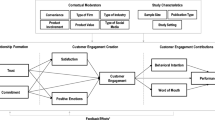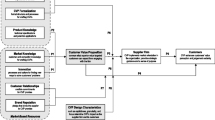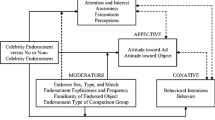Abstract
Fear of opportunistic customers is an important reason why firms are reluctant to implement service guarantees. This article empirically tests potential drivers of cheating. Potential material gain and repeat purchase intent were tested across three studies, whereas satisfaction, ease of invoking the guarantee, morality, shame, self-monitoring, and Machiavellianism were each tested in a subset of the three studies. The results for potential material gain and repeat purchase intent were consistent across all three studies: potential material gain had no effect on consumer cheating, but repeat purchase intent reduced that tendency. Other findings suggest that high levels of satisfaction, morality, and self-monitoring reduce cheating, whereas high levels of Machiavellianism increase cheating. Furthermore, two three-way interaction effects were encountered. Specifically, Machiavellianism interacted with gain and ease of invocation, and with gain and repeat purchase intent. In both cases, individuals with high Machiavellianism took advantage of certain situational constellations.
Similar content being viewed by others
References
Abratt, Russell, Deon Nel, and Nicola S. Higgs. 1992. “An Examination of the Ethical Beliefs of Managers Using Selected Scenarios in a Cross-cultural Environment.”Journal of Business Ethics 11 (1): 29–35.
Albrecht, Steve W., Keith R. Howe, and Marshall B. Romey. 1984. “Detering Fraud: The Internal Auditor’s Perspective. Altamonte Springs, FL: The Institute of Internal Auditors Research Foundation.
Axelrod, Robert. 1984.The Evolution of Cooperation. New York: Basic Books.
Becker, Helmut and David J. Fritzshe. 1987. “Business Ethics: A Crosscultural Comparison of Managers’ Attitudes.”Journal of Business Ethics 6 (4): 289–295.
Bennett, Rebecca J. and Sandra L. Robinson. 2003. “The Past, Present and Future of Workplace Deviance Research.,” InOrganizational Behavior: The State of the Science, 2d ed. Ed. J. Greenberg. Mahwah, NJ: Laurence Erlbaum.
Blake, Judith and Kingsley Davis. 1964. “Norms, Values and Sanction.” InHandbook of Modern Sociology. Ed. R. Faris. Chicago: Rand McNally, 456–484.
Christie, Richard and Florence L. Geis. 1970.Studies in Machiavellianism. New York: Academic Press.
Chu, Wujin, Eitan Gerstner and James D. Hess. 1998. “Managing Dissatisfaction: How to Decrease Customer Opportunism by Partial Refunds.”Journal of Service Research 1 (2): 140–155.
Cialdini, Robert B. 1996. “Social Influence and the Triple Tumor Structure of Organizational Dishonesty.” InCodes of Conduct: Behavioral Research Into Business Ethics. Eds. M. Messik and A. E. Tenbrunsel. New York: Russell Sage., 44–56.
Cole, Catherine A. 1989. “Research Note: Deterrence and Consumer Fraud.”Journal of Retailing 65 (Spring): 107–120.
Corcoran, Kevin J. and Julian B. Rotter. 1987. “Morality—Conscience Guilt Scale as a Predictor of Ethical Behavior in a Cheating Situation Among College Females.”Journal of General Psychology 114 (2): 117–123.
Covey, Mark K., Steve Saladin, and Peter J. Killen. 1989. “Self-Monitoring, Surveillance, and Incentive Effects on Cheating.”Journal of Social Psychology 129 (5): 673–679.
Cox, Anthony D., Dena Cox, Ronald D. Anderson, and George P. Moschis. 1993. “Research Note: Social Influences on Adolescent Shoplifting—Theory, Evidence, and Implications for the Retail Industry.”Journal of Retailing 69 (Summer): 234–246.
Dabholkar, Pratibha A. 1996. “Consumer Evaluations of New Technology-Based Self-Service Options: An Investigation of Alternative Models of Service Quality.”International Journal of Research in Marketing 13:29–51.
DePaulo, Bella M., J. I. Stone, and Daniel G. Lassiter. 1985. “Deceiving and Detecting Deceit.” InThe Self and Social Life Ed. B. R. Schlenker. New York: McGraw-Hill, 323–370.
Dittenhofer, Mortimer A. 1995. “Fraud Corruption in the Public Sector: The Behavioral Aspects of Fraud and Embezzlement.”Public Money and Management 15 (1): 9–14.
Ekman, Paul. 1985.Telling Lies. New York: Norton.
— and Wallace V. Friesen. 1974. “Detecting Deception From Body or Face.”Journal of Personality and Social Psychology 29:288–298.
Ford, Robert C. and Woodrow D. Richardson. 1994. “Ethical Decision Making: A Review of Empirical Literature.”Journal of Business Ethics 13:205–221.
Fornell, Claes and Birger Wernerfelt. 1987. “Defensive Marketing Strategy by Customer Complaint Management: A Theoretical Analysis.”Journal of Marketing Research 24 (4): 337–346.
— and —. 1988. “A Model for Customer Complaint Management.”Marketing Science 7: 287–298.
Ghosh, Dipankar, and Terry L. Crain. 1995. “Ethical Standards, Attitudes Toward Risk and Intentional Noncompliance: An Experimental Investigation.”Journal of Business Ethics 14 (5): 353–365.
Grover, Steven L. and Chun Hui. 1994. “The Influence of Role Conflict and Self Interest on Lying in Organizations”Journal of Business Ethics 13 (4): 295–303.
Harris, Lloyd C. and Emmanuel Ogbonna. 2002. “Exploring Service Sabotage: The Antecedents, Types and Consequences of Frontline Deviant, Antiservice Behaviors.”Journal of Service Research 4 (3): 163–183.
Hart, Christopher W. L. 1988. “The Power of Unconditional Service Guarantees.”Harvard Business Review 67 (4): 54–62.
— 1993.Extraordinary Guarantees: A New Way to Build Quality Throughout Your Company and Ensure Satisfaction for Your Customers. New York: AMACOM.
—, Leonard A. Schlesinger, and Dan Maher. 1992. “Guarantees Come to Professional Service Firms.”Sloan Management Review 33 (3): 19–29.
Hays, Julie M. and Arthur V. Hill. 2001. “A Longitudinal Study of the Effect of a Service Guarantee on Service Quality.”Production and Operations Management 10 (4): 405–23.
Hegarty, Harvey W. and Henry P. Sims, Jr. 1978. “Some Determinants of Unethical Decision Behavior: An Experiment.”Journal of Applied Psychology 63 (4): 451–457.
— and — 1979. “Organizational Philosophy, Policies and Objectives Related to Unethical Decision Behavior: A Laboratory Experiment.”Journal of Applied Psychology 64 (3): 331–338.
Heskett, James L., W. Earl Sasser, and Christopher W. L. Hart. 1990. “Developing Devices for Achieving Total Customer Satisfaction.” InService Breakthroughs: Changing the Rules of the Game. New York: Free Press. 87–111.
Hofstede, Geert H. 1980.Culture’s Consequences: International Differences in Work-Related Values. Beverly Hills, CA: Sage.
Hollinger, Richard C. and John P. Clark. 1983.Theft by Employees. Lexington Books, MA: Lexington.
Hwang, Peter and Willem P. Burgers. 1997. “Properties of Trust: An Analytical View.”Organizational Behavior and Human Decision Processes. 69 (1): 67–73.
— and —. 1999. “Apprehension and Temptation.”Journal of Conflict Resolution 43 (1): 117–130.
Huefner, Jonathan C. and H. Keith Hunt. 2000. “Consumer Retaliation as a Response to Dissatisfaction.”Journal of Consumer Satisfaction, Dissatisfaction and Complaining Behavior 13: 61–82.
Iacobucci, Dawn. 2001. “Editor’s Integration of Discussion on ‘Continuous and Discrete Variables—Treating an Individual Difference Predictor as Continuous or Categorical’.”Journal of Consumer Psychology 10 (1–2), 52–53.
Irwin, Julie. 2001. “Author’s Comment to Discussion on ‘Continuous and Discrete Variables—Treating an Individual Difference Predictor as Continuous or Categorical’.”Journal of Consumer Psychology 10 (1–2): 51–52.
Johnson, Ronald C., George P. Danko, Yau-Huang Huang, Jong Young Park, Steven B. Johnson, and Craig T. Nagoshi. 1987. “Guilt, Shame, and Adjustment in Three Cultures.”Personal Individual Differences 8 (3): 357–364.
— and R. Noel. 1970.Dimensions of Conscience. Unpublished Manuscript. University of Hawaii, Honolulu.
Jones, Gwen E. and Michael J. Kavanagh. 1996. “An Experimental Examination of the Effects of Individual and Situational Factors on Unethical Behavioral Intentions in the Workplace.”Journal of Business Ethics 15: 511–523.
June, Leslie P. and Stephen L. J. Smith. 1987. “Service Attributes and Situational Effects on Customer Preferences for Restaurant Dining.”Journal of Travel Research 26 (2): 20–27.
Kallis, Jeffrey M. and Dinoo J. Vanier. 1985. “Consumer Shoplifting: Orientations and Deterrents.”Journal of Criminal Justice 13 (5): 459–473.
Kandampully, Jay and Liam Butler. 2001. “Service Guarantees: A Strategic Mechanism to Minimize Customers’ Perceived Risk in Service Organizations.”Managing Service Quality 11 (2): 112–120.
Kashyap, Rajiv. 2001. “The Effects of Service Guarantees on External and Internal Markets.”Academy of Marketing Science Review [Online] 01 (10).
Katz, Roger C., Jennifer Santman, and Pamela Lonero. 1994. “Findings on the Revised Morally Debatable Behaviors Scale.”Journal of Psychology 128 (1): 15–21.
Kau, Ah Keng, Soo Jiuan Tan, and Jochen Wirtz. 1998.Seven Faces of Singaporeans—Their Values, Aspirations and Lifestyles. Singapore: Prentice Hall.
Kohlberg, Lawrence. 1969. “Stage and Sequence: The Cognitive Development Approach to Socialization.” InThe Handbook of Socialization Theory and Research. Ed. D. A. Goslin. Chicago: Rand McNally, 347–480.
Kum, Doreen and Jochen Wirtz. 2003. “Determinants of Unethical and Opportunistic Behavior of Consumers.”The NUS Business School Research Paper Series. No. 2003-039 (Mkt), National University of Singapore.
Lewis, Michael. 1993. “Self-Conscious Emotions: Embarrassment, Pride, Shame and Guilt.” InHandbook of Emotions. Eds. M. Lewis and J. M. Haviland. New York: Guilford, 563–573.
Lim, Vivien K. G. and Sean K. B. See. 2001. “Attitudes Toward, and Intentions to Report, Academic Cheating Among Students in Singapore.”Ethics & Behavior 11 (3): 261–274.
Longo, Tracey. 1995. “At Stores, Many Unhappy Returns.”Kiplinger’s Personal Finance Magazine 20: 239–255.
Malinowski, Carl I. and Charles P. Smith. 1985. “Moral Reasoning and Moral Conduct: An Investigation Prompted by Kohlberg’s Theory.”Journal of Personality and Social Psychology 49 (4): 1016–1027.
Marmorstein, Howard, Dan Sarel, and Walfried M. Lassar. 2001. “Increasing the Persuasiveness of a Service Guarantee: The Role of Service Process Evidence.”Journal of Services Marketing 15 (2): 147–159.
Maxwell, Scott E. and Harold D. Delaney. 1993. “Bivariate Median Splits and Spurious Statistical Significance.”Psychological Bulletin 66: 464–472.
McCollough, Michael A. and Dwayne D. Gremler. 1999. “Guaranteeing Student Satisfaction: An Exercise in Treating Students as Customers.”Journal of Marketing Education 21 (2): 118–130.
McDougall, Gordon H., Terence Levesque, and Peter VanderPlaat. 1998. “Designing the Service Guarantee: Unconditional or Specific?”Journal of Services Marketing 12 (4): 278–293.
Mosher, Dina L. 1965. “Interaction of Fear and Guilt in Inhibiting Unacceptable Behavior.”Journal of Consulting Psychology 29: 161–167.
Mudrack, Peter E. 1994. “Are the Elderly Really Machiavellian? A Reinterpretation of an Unexpected Finding.”Journal of Business Ethics 13: 757–758.
Narayandas, Das. 1998. “Measuring and Managing the Benefits of Customer Retention.”Journal of Service Research 1 (2): 108–128.
Nettler, Gwynn. 1982.Lying, Cheating, and Stealing, Cincinnati, OH: Anderson.
Ostrom, Amy L. and Christopher W. L. Hart. 2000. “Service Guarantees: Research and Practice.” InHandbook of Services Marketing & Management. Eds. T. Schwartz and D. Iacobucci. Thousand Oaks, CA: Sage, 299–316.
— and Dawn Iacobucci. 1998. “The Effect of Guarantees on Consumer’s Evaluation of Services.”Journal of Services Marketing 12 (5): 362–378.
Paternoster, Raymond and Sally Simpson. 1996. “Sanction Threats and Appeals to Morality: Testing a Rational Choice Model of Corporate Crime.”Law and Society Review 30 (3): 549–583.
Salamon, S. and Sandra L. Robinson. 2002. “Does Trust Climate Deter Workplace Deviance? An Organizational Level Analysis.” Paper presented at the annual meeting of the Academy of Management. Denver, CO.
Schwartz, R. D. and S. Orleans. 1967. “On Legal Sanctions.”The University of Chicago Law Review 34:274–300.
Singhapakdi, Anusorn and Scott J. Vitell. 1990. “Marketing Ethics: Factors Influencing Perceptions of Ethical Problems and Alternatives.”Journal of Macromarketing 10 (1): 4–18.
Snyder, Mark. 1974. “Self-Monitoring of Expressive Behavior.”Journal of Personality and Social Psychology 30 (4): 526–537.
—. 1987.Public Appearances/Private Realities. New York: W. H. Freeman.
Trevino, Linda K. 1986. “Ethical Decision Making in Organizations: A Person-Situation Interactionist Model.”Academy of Management Review 11 (3): 601–617.
Tripp, Thomas M. and Robert J. Bies. 1997. “What’s Good About Revenge? The Avenger’s Perspective.”Research on Negotiation in Organizations 6: 145–160.
Tybout, Alice. 2001. Response to “Continuous and Discrete Variables— Treating an Individual Difference Predictor as Continuous or Categorical”.Journal of Consumer Psychology 10 (1–2): 48–59.
World Bank. 1995.World Bank Atlas. Oxford, UK: Oxford University Press for the World Bank.
Wirtz, Jochen. 1998. “Development of a Service Guarantee Model.”Asia Pacific Journal of Management 15 (1): 51–75.
— and Doreen Kum. 2001. “Designing Service Guarantees—Is Full Satisfaction the Best You Can Guarantee?”Journal of Services Marketing 15 (4): 282–299.
Zhang, Jianxin and Michael H. Bond. 1993. “Target-Based Interpersonal Trust: Cross-Cultural Comparison and Its Cognitive Model.”Acta Psychologica Sinica 25 (2): 164–172.
Zinkhan, George M. and Kiran W. Karande. 1991. “Cultural and Gender Differences in Risk-Taking Behavior Among American and Spanish Decision Makers.”Journal of Social Psychology 131 (5): 741–742.
Author information
Authors and Affiliations
Additional information
Jochen Wirtz (bizwirtz@nus.edu.sg) (Ph.D., London Business School) is an associate professor of marketing and academic director of the Asia-Pacific Executive MBA (APEX-MBA) Program, and academics co-director of the UCLA-NUS Executive MBA Program at the NUS Business School, National University of Singapore. His research focuses on service managementrelated issues including service guarantees, customer satisfaction, customer feedback systems, and revenue management. His recent work has been published in theCornell HRA Quarterly, theJournal of Business Research, theInternational Journal of Service Industry Management, theJournal of Consumer Psychology, theJournal of Retailing, theJournal of Services Marketing, andPsychology and Marketing. He is also a coauthor of the fifth edition ofServices Marketing (with Christopher Lovelock, Prentice Hall) andServices Marketing in Asia—Managing People, Technology and Strategy (with Christopher Lovelock and Hean Tat Keh, Prentice Hall). In recognition of his excel-lence in instruction, he has received several teaching awards, including the university-level Outstanding Educator Award 2003, the business school-level Outstanding Educator Award 2002, and the Award for Excellence in Instruction from the MBA Alumni. Outside academia, he has been an active management consultant working with a number of consulting firms in Asia and Europe, including Accenture, Arthur D.Little, and KPMG.
Doreen Kum (doreenk@nus.edu.sg) is a doctoral candidate in the Department of Marketing, NUS Business School, National University of Singapore. Her research focuses on consumer behavior issues such as categorization and branding strategies, as well as service guarantees. Her research has been published in theGeneral Management Review andJournal of Services Marketing.
Rights and permissions
About this article
Cite this article
Wirtz, J., Kum, D. Consumer cheating on service guarantees. JAMS 32, 159–175 (2004). https://doi.org/10.1177/0092070303261416
Issue Date:
DOI: https://doi.org/10.1177/0092070303261416




